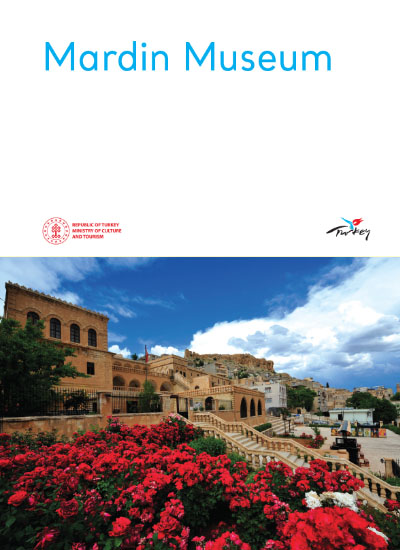The Mardin Museum is situated in the old town square and comprises two separate buildings, one serving as a museum and the other as administrative units. The museum building was constructed in 1895 by Patriarch Ignatios Behnam Banni as the Syriac Catholic Patriarchate. The Church of the Virgin Mary is located in the eastern part of the building. The building serving as the Mardin Museum exhibits all the characteristics of traditional Mardin architecture. The Hall of Archaeological Excavations displays artefacts unearthed during archaeological excavations in ancient settlements in and around Mardin. Some of these sites include Boncuklu Tarla, Havuz Mevki, Ilısu Höyük, Kumru Tarlası, Zeviya Kavla, Tatika, Kilokki Rabiseki, Kerküşti, Nusaybin Girnavaz, Dara, Midyat Aktaş Necropolis, Nusaybin Church of Saint Jacob in Nisibis, and Mardin Castle. In the Hall of Faith, the evolution of Mesopotamian mythology, the rise of religions in antiquity, the development of paganism, the advent of Christianity and the emergence of Islam are presented through the lens of objects and rituals, including burial traditions, totems, fertility and healing magic. In the Hall of Trade, the emergence of trade in Mesopotamia, the evolution of the first means of payment, the narrative of money, the invention of writing, transportation and the shaping of human economic and commercial life from past to present are elucidated. One of the most noteworthy exhibits in this hall is the Sürekli Treasure, which was unearthed during an excavation at Kızıltepe Sürekli Village. This treasure contains a variety of golden and silver objects belonging to the Abbasids, Ilkhanids, Ayyubids, Byzantines, Zengids and Artuqids, which date from the 9th to the 14th centuries. In the Hall of Life, the social life in Mardin and Mesopotamian cultures is introduced with the themes of nutrition, music, decoration and defence. The beginning of agriculture in Mesopotamia, the emergence of pottery and its development to the present day, food culture of Mardin and the traditional music are narrated through the objects on display.
MARDİN MUSEUM


